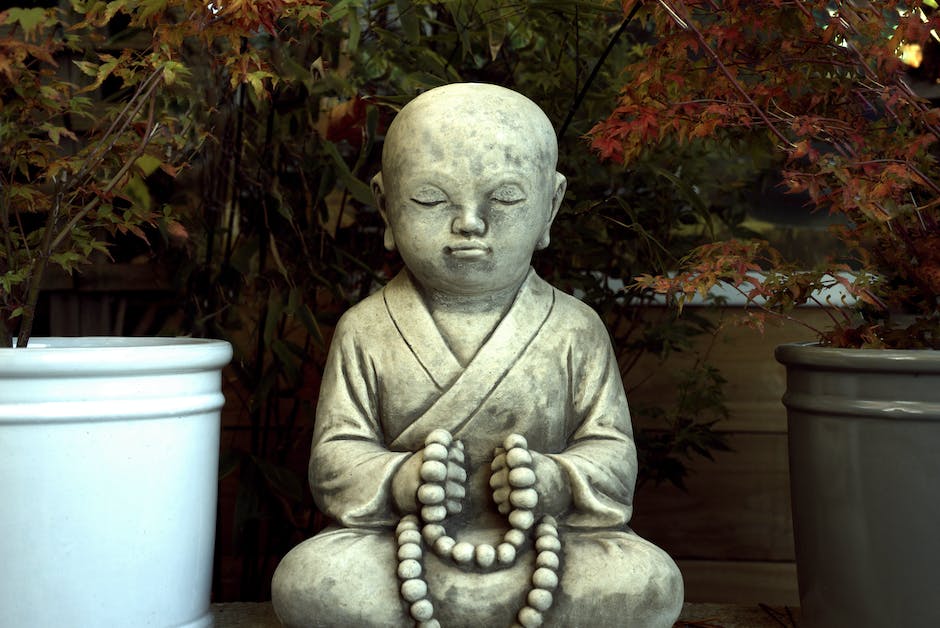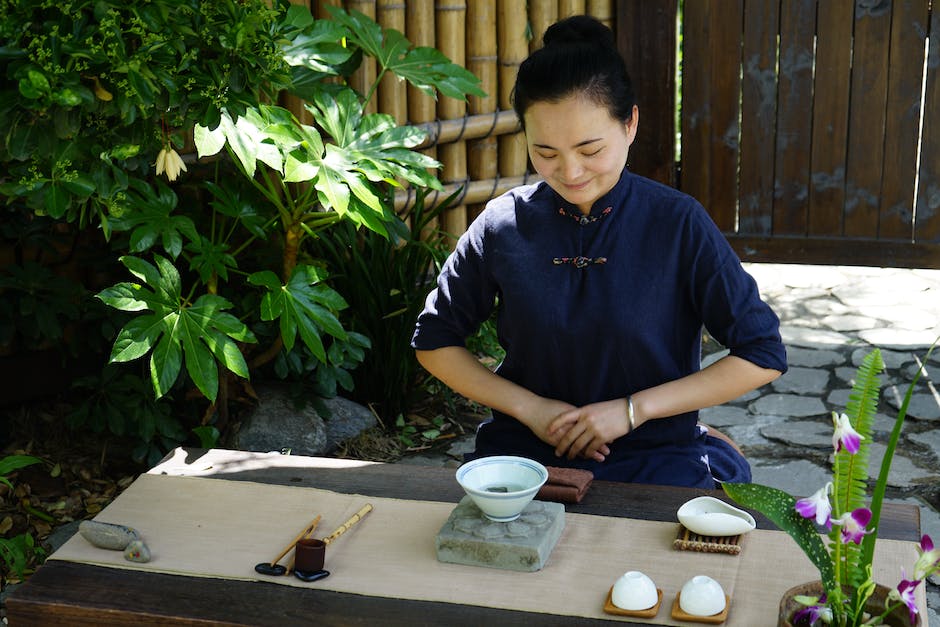Serenity in Growth: Creating a Hydroponic Zen Garden
In our fast-paced world, finding moments of serenity and tranquility has become increasingly rare. The demands of our professional lives often leave little time for relaxation and rejuvenation. However, as we strive for balance and personal growth, it is essential to carve out spaces that promote calmness and a sense of well-being.
One innovative way to achieve this is by creating a hydroponic Zen garden. This unique fusion of hydroponics, the art of growing plants without soil, and the principles of Zen, a school of Buddhism emphasizing meditation and simplicity, can provide an oasis of serenity within the confines of your workspace or office.
The hydroponic system allows plants to flourish by providing them with the precise nutrients and water they need directly to their roots. By eliminating the need for soil, hydroponics offers a clean and visually appealing way to cultivate plants. Coupled with Zen principles, we can create an environment that not only enhances productivity but also encourages mindfulness and a peaceful state of mind.
Imagine a miniature Zen garden with lush greenery, delicate bonsai trees, and serene water features, all thriving effortlessly in a hydroponic system. The aesthetic appeal of such a garden is undeniable, and the carefully curated elements promote relaxation and harmony. As we engage with this natural masterpiece, we can detach ourselves from the stresses of everyday life, allowing our minds to achieve a state of tranquility.
Beyond the aesthetics, hydroponic Zen gardens can also provide numerous mental and physical health benefits. Spending time in nature has been scientifically proven to improve our overall well-being, reduce stress, and increase creativity and focus. By incorporating these elements into our work environment, we can create an ambience that fosters personal growth and professional success.
Over the following sections, we will delve deeper into the various components of creating a hydroponic Zen garden. We will explore the types of plants that thrive in hydroponic systems, techniques for designing a serene garden space, and the maintenance required to keep your garden flourishing. So, let us embark on this journey together and discover the serene world of hydroponic Zen gardens.
– Briefly introduce the concept of a hydroponic zen garden

Hydroponic gardening has gained significant popularity in recent years, as it offers an innovative and efficient way to cultivate plants without the need for soil. In this modern approach to gardening, plants are grown in a nutrient-rich water solution, providing optimal conditions for growth and development.
Adding a Zen element to hydroponic gardening results in the creation of a serene and peaceful space known as a hydroponic zen garden. Inspired by traditional Japanese Zen gardens, this contemporary variation brings together the benefits of hydroponics with the tranquility of Zen principles.
The concept of a hydroponic zen garden revolves around creating harmonious and balanced surroundings that promote relaxation and peace. Just like a traditional Zen garden, the hydroponic version includes carefully arranged elements, such as rocks, sand, plants, and water, to create a visually soothing and Zen-like atmosphere.
In a hydroponic zen garden, the focus is not only on the cultivation of plants but also on the overall aesthetics and ambiance. By carefully selecting and arranging the plants, colors, and materials, one can create a space that not only provides a therapeutic gardening experience but also serves as a place for meditation and reflection.
The absence of soil in hydroponics eliminates the hassle of dealing with weeds, pests, and other common gardening challenges. It allows for more precise nutrient control, resulting in healthier and more vigorous plant growth. With the addition of Zen principles, the hydroponic garden becomes more than just a means of growing plants—it becomes a sanctuary for peace and personal well-being.
Whether you are a busy professional seeking tranquility in the midst of a fast-paced life or a gardening enthusiast looking for a unique approach to cultivating plants, a hydroponic zen garden offers an enticing option. It provides an opportunity to foster an uncluttered mind, enhance focus, and enjoy the benefits of nature within a controlled and peaceful environment.
In the upcoming sections of this blog post, we will delve deeper into the elements and design principles that make a hydroponic zen garden truly serene, as well as the types of plants that thrive in this setting. Join us as we explore how to create a harmonious and peaceful oasis that combines the modern technology of hydroponics with the timeless wisdom of Zen philosophy.
– Explain the aim of the blog post: to guide readers in creating their own serene hydroponic garden

In the fast-paced world of business, finding moments of tranquility and calm can be crucial to achieving a successful and balanced life. One way to create a serene oasis amidst the hustle and bustle is by cultivating a hydroponic zen garden. This blog post aims to guide our readers in creating their own peaceful hydroponic garden, where they can find solace, practice mindfulness, and foster personal growth.
When we think of traditional gardens, we often imagine lush landscapes filled with soil and plants. However, hydroponic gardens offer a unique and innovative approach to cultivating greenery indoors. By bypassing traditional soil-based methods, hydroponics allows us to grow plants in a nutrient-rich water solution, using only a fraction of the space and resources compared to conventional gardening.
The aim of this blog post is to help our readers understand the benefits of a hydroponic zen garden and provide practical insights on how to create one. In this serene oasis, the harmony between nature and self becomes the foundation for personal growth and the cultivation of a peaceful mindset.
By embracing the principles of zen gardening, we can bring balance and simplicity into our daily lives. The practice of mindfulness, emphasized in zen philosophy, is intricately linked to the creation and maintenance of a hydroponic garden. As we tend to our plants and observe their growth, we learn to be fully present in the moment, appreciating the beauty and harmony of nature.
Creating a hydroponic zen garden requires careful planning and consideration. From selecting the right plants to designing the layout and ensuring optimal growing conditions, every step contributes to the overall ambiance of serenity. By deliberately arranging plants, stones, and water features, we can evoke a sense of tranquility and equilibrium within our indoor oasis.
Whether you have limited space or simply desire a calming retreat in the midst of a busy workday, a hydroponic zen garden offers a versatile and customizable solution. As we delve into the specifics of designing, building, and maintaining this soothing space, we will introduce various techniques and tips to inspire readers to embark on their own journey towards serenity and personal growth.
So, let’s explore the world of hydroponic zen gardens together and discover the transformative power of creating a serene oasis in our professional lives. Get ready to embrace the tranquility and embark on a journey towards serenity in growth.
What is hydroponics? (explain the basics)

Hydroponics is a innovative method of growing plants that challenges the traditional soil-based approach. It involves cultivating plants in a controlled environment where their root systems are submerged in nutrient-rich water instead of being planted in soil. This technique allows for more precise control over the plant’s growing conditions, resulting in faster growth, higher yields, and greater control over nutrient absorption.
At its core, hydroponics relies on the principle that plants do not necessarily need soil to thrive. Instead, they primarily require essential nutrients, water, and light to carry out their photosynthesis process. By providing these key elements directly to the plants in a carefully balanced system, hydroponics eliminates the need for soil, which can often carry pests, diseases, and variable nutritional content.
In a hydroponic system, the plant’s roots are suspended in a growing medium such as perlite, vermiculite, or Rockwool, which stabilizes and supports the plants. The nutrient-rich solution is continuously circulated around the roots, providing them with an adequate supply of water, oxygen, and essential minerals. This continuous flow of nutrients ensures that the plants can absorb the necessary elements for healthy and vigorous growth.
One of the major advantages of hydroponics is its ability to optimize resource usage. Unlike traditional farming, hydroponics uses up to 90% less water as it recirculates the nutrient solution, minimizing evaporation and waste. Additionally, hydroponic systems can be set up in smaller spaces, making them suitable for urban environments and areas with limited land availability.
Moreover, hydroponics provides an opportunity for precise customization of the growing conditions. By manipulating factors such as nutrient concentrations, pH levels, and light cycles, growers can tailor the environment to suit the specific needs of different plant species. This level of control enables year-round cultivation of various vegetables, fruits, and herbs irrespective of the prevailing weather conditions.
While hydroponics may initially seem complex, it offers a highly efficient and sustainable solution for modern-day farming. By adopting this method, growers can achieve optimal plant growth, reduce the use of resources, and create a serene garden that flourishes with healthy, vibrant plants. In the next section, we will explore the steps to create your own hydroponic zen garden.
– Provide a definition of hydroponics

Hydroponics is an innovative method of growing plants without the use of soil. Instead, it relies on a precisely controlled water-based solution enriched with essential nutrients to nourish plant roots directly. This technique eliminates the need for traditional soil, allowing plants to grow in a soilless environment.
The practice of hydroponics has gained significant popularity in recent years due to its numerous benefits. One of the main advantages is its water efficiency, as hydroponic systems use up to 90% less water compared to traditional soil-based gardening methods. This makes it an environmentally friendly choice, particularly in regions facing water scarcity or limited access to arable land.
Another key advantage of hydroponics is its ability to accelerate plant growth. By providing plants with a constant and optimal supply of nutrients, water, and oxygen, hydroponic systems create ideal conditions for plant development. Without the need to search for nutrients in soil, plants can allocate their energy towards growth and fruit production, resulting in healthier and more productive crops.
Hydroponics also offers greater control over plant nutrition and environmental factors. Growers can fine-tune the nutrient solution to meet the exact requirements of different plant species, ensuring optimal growth and yield. Additionally, factors such as pH levels, temperature, and lighting can be carefully regulated, providing a consistent and favorable environment for plants to thrive.
The absence of soil in hydroponics also eliminates the risk of soil-borne diseases and pests, reducing the need for chemical pesticides. This organic approach not only promotes healthier, pesticide-free produce but also minimizes the environmental impact associated with conventional farming practices.
Furthermore, hydroponics allows for year-round cultivation, making it suitable for both commercial farming and personal gardening. The controlled environment of hydroponic systems enables growers to extend growing seasons, overcome climatic limitations, and harvest fresh produce regardless of the external conditions.
In conclusion, hydroponics offers a modern and efficient way to cultivate plants with numerous benefits. From enhanced water efficiency and accelerated growth to precise control over plant nutrition and a reduced environmental footprint, this soilless gardening technique presents an appealing option for those seeking a sustainable and productive approach to horticulture.
– Present the benefits of hydroponic gardening

Hydroponic gardening offers a myriad of benefits for both individuals and businesses looking to create a serene and professional atmosphere. By utilizing this innovative method, you can harness the power of nature to foster growth and tranquility within your workspace or personal space.
One of the primary advantages of hydroponic gardening is its space efficiency. This technique allows you to cultivate plants without the need for traditional soil-based gardening plots. As a result, you can create a beautiful and thriving garden even in limited spaces such as office corners, conference rooms, or small balconies. This not only adds aesthetic appeal to the environment but also maximizes the utilization of available space.
In addition to its space-saving benefits, hydroponic gardening also thrives on water conservation. Unlike traditional gardening, which requires significant amounts of water, hydroponics uses a closed-loop irrigation system. This means that water is recirculated and reused, minimizing waste and reducing the overall water consumption. By adopting hydroponics, businesses can demonstrate their commitment to sustainable practices, while individuals can contribute to water conservation efforts.
Furthermore, the controlled environment of hydroponic gardening allows for optimal plant growth and health. Nutrient-rich water solutions are carefully balanced to provide plants with exactly what they need, ensuring continuous and healthy growth. This precise control eliminates the need for chemical fertilizers and pesticides, creating a healthier and more natural environment for both the plants and the people.
Hydroponic gardening also offers the advantage of convenience and ease of maintenance. With this method, you eliminate the difficulties associated with traditional soil-based gardening, such as weeding, digging, and constant monitoring of soil moisture. The hydroponic system streamlines these processes, making gardening more accessible for everyone, even those with limited time or gardening experience.
Finally, the serene and peaceful nature of hydroponic gardens can contribute to stress reduction and improved mental well-being. Studies have shown that being surrounded by greenery and nature can have a calming effect, promoting relaxation and productivity. By incorporating hydroponic gardens into office spaces or personal environments, businesses and individuals can create a peaceful oasis where stress can be alleviated and creativity can flourish.
In conclusion, hydroponic gardening provides numerous benefits for individuals and businesses alike. From its space efficiency and water conservation advantages to the ease of maintenance and positive impact on mental well-being, this innovative gardening method allows for the creation of serene and professional environments. By embracing hydroponics, you can cultivate a zen-like atmosphere that promotes growth, tranquility, and productivity.
– Mention the types of plants suitable for hydroponic cultivation

When it comes to cultivating a serene and harmonious environment, incorporating a hydroponic zen garden can be a visually captivating and mentally calming addition to any professional space. Hydroponics is a method of growing plants in a nutrient-rich water solution without the use of soil. This innovative technique allows for the cultivation of various types of plants, each offering their unique benefits in terms of aesthetics and mindfulness.
1. Herbs and leafy greens:
Including herbs and leafy greens in your hydroponic zen garden not only adds a touch of vibrant greenery but also brings a fresh aroma that can uplift the senses. Plants such as basil, parsley, kale, and spinach thrive in hydroponic systems, providing a constant supply of nutrient-packed herbs and greens for culinary purposes or as calming visual elements.
2. Succulents and air plants:
For a more minimalist and low-maintenance approach, succulents and air plants are excellent choices. These resilient plants require less water and can withstand varying light conditions, making them ideal for hydroponic setups. Their unique shapes, textures, and colors add a touch of contemporary elegance to the zen garden, enhancing its aesthetic appeal.
3. Flowering plants:
To evoke a sense of tranquility and beauty, consider incorporating flowering plants into your hydroponic zen garden. Orchids, peace lilies, and African violets are some examples of flowering plants that thrive in hydroponic systems. Their delicate blossoms and captivating fragrances create a serene atmosphere, promoting relaxation and mindfulness.
4. Bonsai trees:
Bonsai trees, with their miniature size and intricate designs, are the epitome of zen aesthetics. While traditionally grown in soil, they can adapt well to hydroponic cultivation. The careful trimming and training required for bonsai trees align perfectly with the meditative practices of a zen garden, allowing for a unique and striking focal point in your hydroponic setup.
By selecting the appropriate plants for your hydroponic zen garden, you can create a visually appealing and calming atmosphere within your professional space. Whether it’s the soothing scent of herbs, the simplistic beauty of succulents, the elegance of flowering plants, or the artistry of bonsai trees, each plant type brings a touch of serenity and growth to your hydroponic oasis. Choose plants that resonate with your personal preferences and design aesthetic, and let them flourish in this symbiotic environment, transcending the boundaries of traditional gardening methods.
Understanding zen gardens

A zen garden, also known as a Japanese rock garden or a dry landscape garden, is a carefully composed space designed to evoke serenity and tranquility. Originating in Japan, these gardens typically consist of carefully arranged rocks, sand or gravel, and minimal vegetation. The philosophy behind a zen garden is deeply rooted in the principles of Zen Buddhism, emphasizing simplicity, harmony, and the connection between nature and the mind.
One of the key elements of a zen garden is the use of rocks or stones. These stones are carefully chosen and placed to create a sense of balance, both visually and energetically. They symbolize mountains, islands, or other natural features and are often arranged in patterns resembling waves or ripples in water. The strategic placement of these rocks serves to create a calming effect, inviting contemplation and reflection.
Sand or gravel is another important element in a zen garden. Raked into carefully maintained patterns, it represents water or ocean waves. The act of raking the sand is not only a form of meditation but also serves to create a sense of movement and flow within the garden. The simplicity of the design allows the mind to focus and find peace, fostering a sense of inner calm and mindfulness.
In a zen garden, vegetation is intentionally kept to a minimum. Deliberate pruning and careful selection of plants ensure that only a few carefully placed specimens are present. The chosen plants are often evergreen and are chosen for their ability to withstand various weather conditions. These plants represent the beauty and resilience of nature, reminding us that growth and harmony can be found even in the harshest of environments.
Zen gardens are not just spaces for visual appeal; they are meant to be experienced and interacted with. They provide a peaceful refuge from the busyness of daily life, serving as a reminder to slow down, breathe, and appreciate the present moment. Stepping into a zen garden, one is encouraged to let go of worries, distractions, and the chaos of the external world, allowing the mind to find clarity and stillness.
Creating a hydroponic zen garden adds a modern twist to this ancient practice, allowing for the cultivation of plants without soil. The combination of hydroponics and zen garden design principles creates a harmonious and sustainable indoor oasis. By incorporating water and a carefully designed layout, a hydroponic zen garden allows individuals to experience the serenity and growth of a traditional zen garden, while also exploring innovative ways of cultivating plants and promoting environmental consciousness.
Whether it is a traditional zen garden or a hydroponic adaptation, the essence of a zen garden lies in its ability to provide a peaceful sanctuary for individuals to connect with nature and find inner peace. By understanding the principles of simplicity, balance, and harmony, one can create their own hydroponic zen garden, embracing serenity in growth and fostering a sense of well-being in the business of life.
– Describe the origins and principles of zen gardens

Zen gardens, also known as Japanese rock gardens or dry landscape gardens, have been an integral part of Japanese culture and aesthetics for centuries. Originating in the Zen temples of Kyoto during the Muromachi period, these gardens were created to provide a serene and meditative space for Zen monks to contemplate and find inner peace.
The principles of Zen gardens revolve around simplicity, harmony, and balance. They aim to evoke a sense of calmness and tranquility by utilizing minimalistic design elements and carefully arranged natural elements. The primary purpose is to create a space that encourages meditation and self-reflection.
In Zen gardens, a key element is the use of rocks and gravel to represent different aspects of nature. These rocks are meticulously arranged to symbolize mountains, islands, or even animals, and are carefully raked to create patterns in the gravel. The raking technique, known as samon or sōmon, is not only aesthetically pleasing but also serves a practical purpose by helping to maintain the cleanliness and order of the garden.
Another essential feature of Zen gardens is the inclusion of water elements such as ponds, streams, or small waterfalls. These water elements represent purity and the flow of life. The sound of flowing water is believed to have a calming effect on the mind and promotes a sense of serenity and relaxation.
Plantings in Zen gardens are kept to a minimum, with a focus on a few carefully chosen and pruned trees, shrubs, and grasses. These plants are strategically placed to complement the surrounding rocks and gravel, adding a touch of greenery to the otherwise stark landscape. The careful selection and placement of plants contribute to the overall harmony and balance of the garden.
Zen gardens serve as a reminder of the impermanence and simplicity of life. They encourage individuals to let go of unnecessary distractions and embrace the present moment. By immersing oneself in the tranquil beauty of a Zen garden, one can experience a profound sense of serenity and find inner peace.
Incorporating elements of a Zen garden into hydroponics can provide a unique and refreshing twist to traditional gardening practices. By combining the principles of simplicity, harmony, and balance, one can create a hydroponic Zen garden that not only promotes plant growth but also cultivates a sense of tranquility and mindfulness.

